When RaeAnne Porte looks back and connects the dots, she can trace her connection with Melissa Finkbeiner, her new friend and mentor, to a random conversation in a furniture store.
RaeAnne and her husband, Jake, were shopping for a sofa. Because RaeAnne was seven months pregnant with her first child, the salesperson struck up a conversation about life as a new mother.
She counseled RaeAnne, 31, to go to the breastfeeding support group at Spectrum Health if she planned to breastfeed.
“She was almost in tears about it, you could tell it meant so much to her,” RaeAnne said. “She said, ‘It saved me.’”
RaeAnne thanked her for the recommendation but mentally brushed the comment aside.
“I was like, ‘That won’t be me. It’ll be fine. We’ll figure it out.’”
Overwhelmed
About two months later, that salesperson’s comment echoed in her mind as her newborn son, Rockton, struggled to gain weight. Five days after bringing him home from the hospital, the Portes learned that Rockton had lost 10 percent of his birth weight, despite RaeAnne’s attempts to nurse him regularly.
Their pediatrician told her she needed to feed him more.
Anxious and overwhelmed, RaeAnne asked Jake if he could recall anything about the breastfeeding support group they’d heard about while furniture shopping. When he remembered it was a Spectrum Health group, she found some breastfeeding support information in the paperwork they got from Spectrum Health Butterworth Hospital when Rockton was born.
She didn’t want to go to the support group.
She didn’t want to walk into a room full of strangers and ask for help. But she knew she had to go for Rockton’s sake, so she plucked up her courage and went. She chose the location at the Spectrum Health Healthier Communities office, near downtown Grand Rapids, Michigan.
“The first time I went, I bawled my eyes out because it was just a struggle,” RaeAnne said.
The lactation counselors leading the group, Mary Oleniczak, RN, and Kathy Feenstra, PT, got out a box of Kleenex and assured her they’d help her through it.
An added challenge
Not only was RaeAnne new to motherhood and the challenges of breastfeeding, but she and Jake were processing the news that Rockton had Down syndrome—a chromosomal abnormality that causes developmental disabilities. The diagnosis was unexpected and the Portes were still coming to grips with what it might mean for Rockton and their family.
A dozen other moms were there that day with their nursing babies—some younger, some older—and they extended RaeAnne a warm welcome.
“They were absolutely phenomenal, and I knew immediately that it was going to be OK,” she said.
Yet, RaeAnne and Rockton had a lot to learn together. Babies with Down syndrome can have more difficulty figuring out how to breastfeed than other babies because they have low muscle tone.
Feenstra and Oleniczak coached RaeAnne on how to get Rockton to latch on, how to position him and how to keep him awake while feeding.
At the end of that first session, Oleniczak told RaeAnne about another mom of a boy with Down syndrome who had participated in the group six years earlier. Today this mom, Melissa Finkbeiner, serves as a resource for other parents.
RaeAnne agreed to let Finkbeiner contact her, but she was really thinking, “‘Now let me get out of here’—because I was still so overwhelmed.”
Meeting Melissa
A couple of days later, Finkbeiner left her a message. RaeAnne didn’t return the call.
“Even then I didn’t think much of it,” RaeAnne said—until she discovered they had a connection through mutual friends. Then she took it seriously: “Oh my goodness, now it’s a God thing.”
After chatting via Facebook Messenger, the women arranged a visit. Another mom of a child with Down syndrome came along with Finkbeiner to RaeAnne’s home.
“I was floored that they would offer that, because Melissa has two kids and probably a million things going on and then Stacey has five little ones,” RaeAnne said. “But one night it worked out and they came and talked to us for like three hours about everything from breastfeeding to—the whole gamut. Tons of topics.”
They shared Down syndrome-specific breastfeeding tips to help RaeAnne strengthen Rockton’s sucking muscles. They also answered Jake and RaeAnne’s questions about helping Rockton thrive as he grows up.
They encouraged the Portes to connect with the Down Syndrome Association of West Michigan. It’s through this organization that Finkbeiner, who used to work as a registered nurse for Spectrum Health, was trained in mentoring other parents of children with Down syndrome.
Finkbeiner also urged RaeAnne to continue attending the breastfeeding support group, something Finkbeiner did off and on throughout the 18 months she nursed her son, Nolan.
“The lactation consultants there have seen just about anything and everything you can think of,” Finkbeiner said. “You just really get what you need when you go there, whether you’re looking for a pat on the back—like, ‘Yes, you’re doing a good job’—or if you need some serious, intense help,” she said.
“It’s there for whatever level you are at and whatever level of assistance you need.”
Finding a rhythm
RaeAnne did go back. She became a regular at the group, attending twice a week for several weeks. She made it her No. 1 task to get Rockton fed and get his weight up. And it worked.
She and Rockton found their rhythm, just as Finkbeiner promised they would.
“Every single time I went I learned something new,” she said. “He has improved tenfold with feeding.”
The support group leaders’ expertise also led to a diagnosis of silent reflux, for which Rockton now receives treatment through the Spectrum Health Helen DeVos Children’s Hospital feeding and swallowing disorders program.
Since their first meeting, Finkbeiner has become RaeAnne’s go-to resource. They talk. They text. They have become friends.
“We speak the same language,” RaeAnne said. “Melissa and I bonded because we both found that home in the support group.”
Going to the group the first time wasn’t easy. It was hard to let down her guard and admit that she needed help with breastfeeding. But getting there made all the difference.
“Because I did that, it just opened up so many other doors,” RaeAnne said. It’s a testament to “the power of a connection and just being willing and open.”
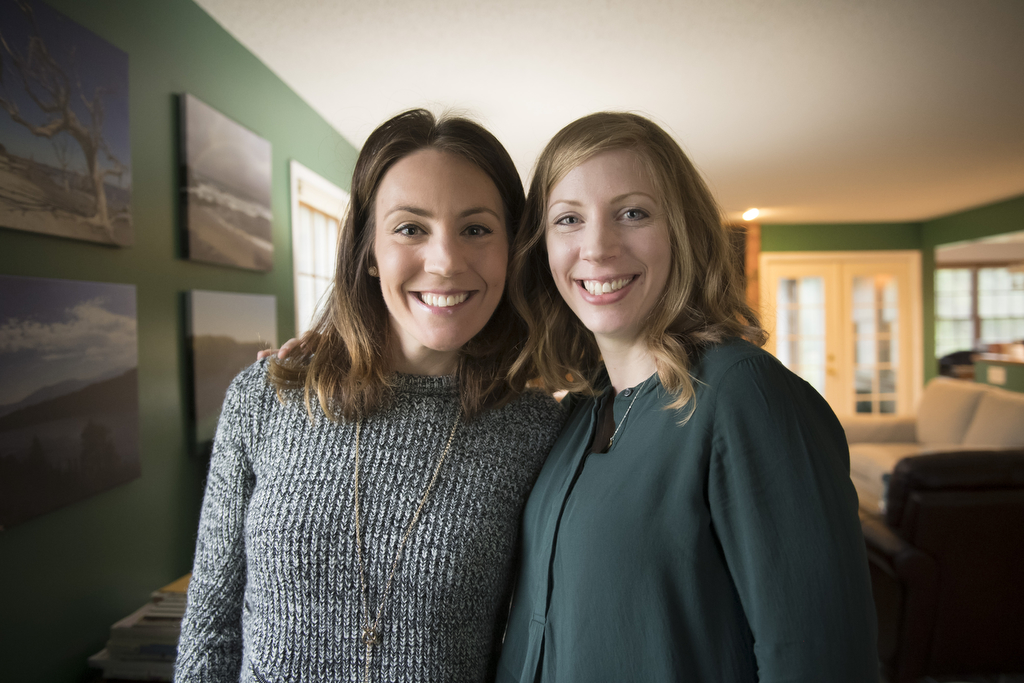
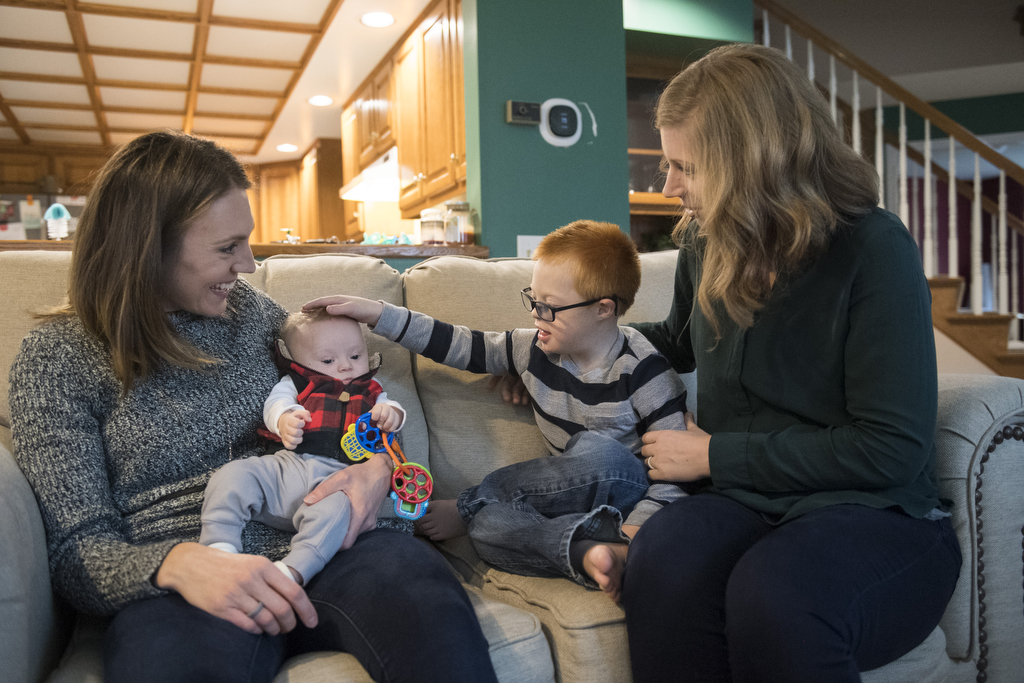
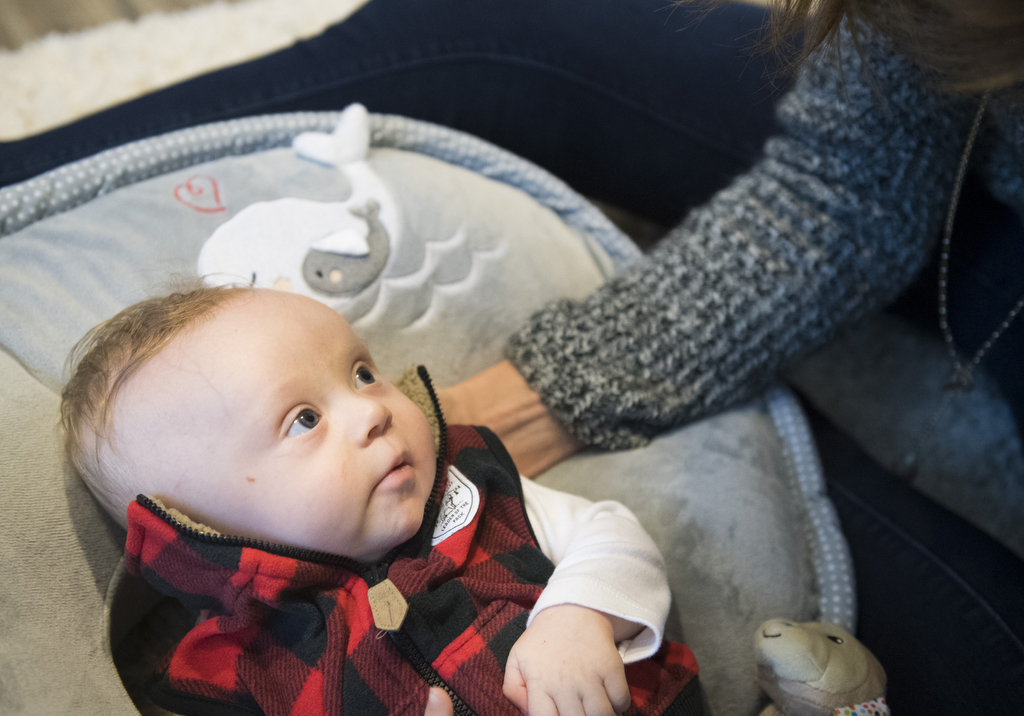
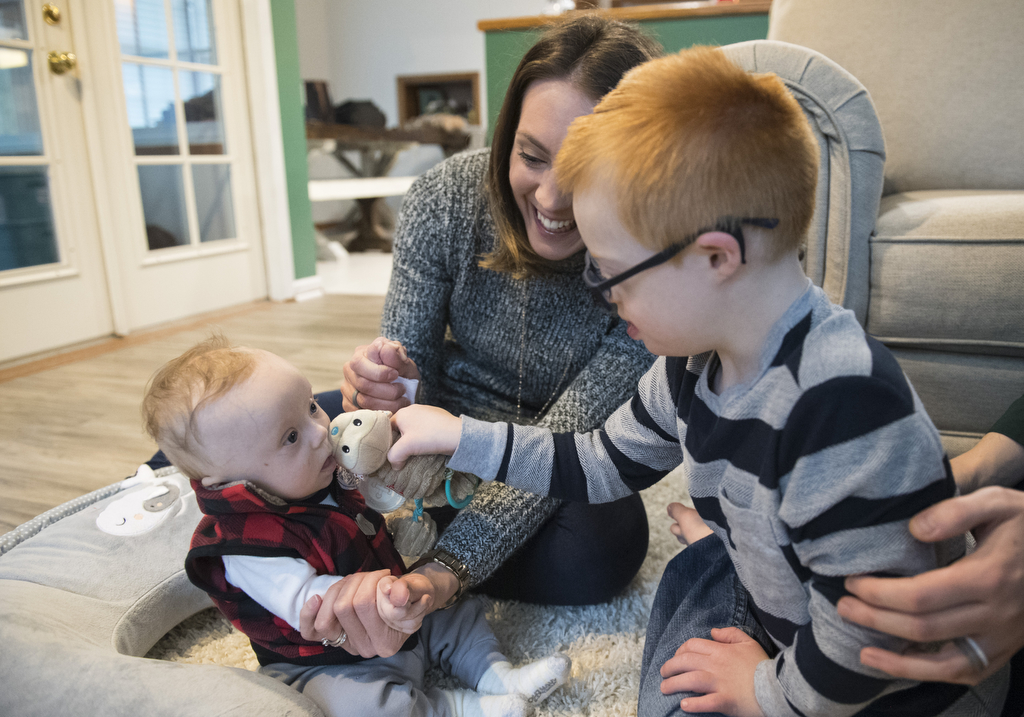
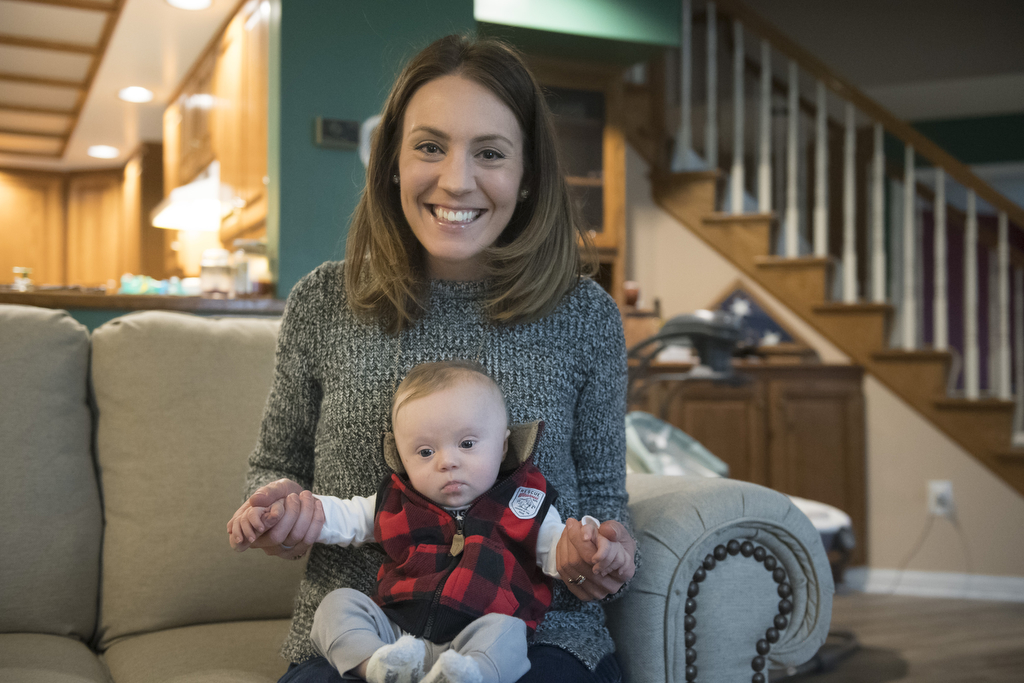
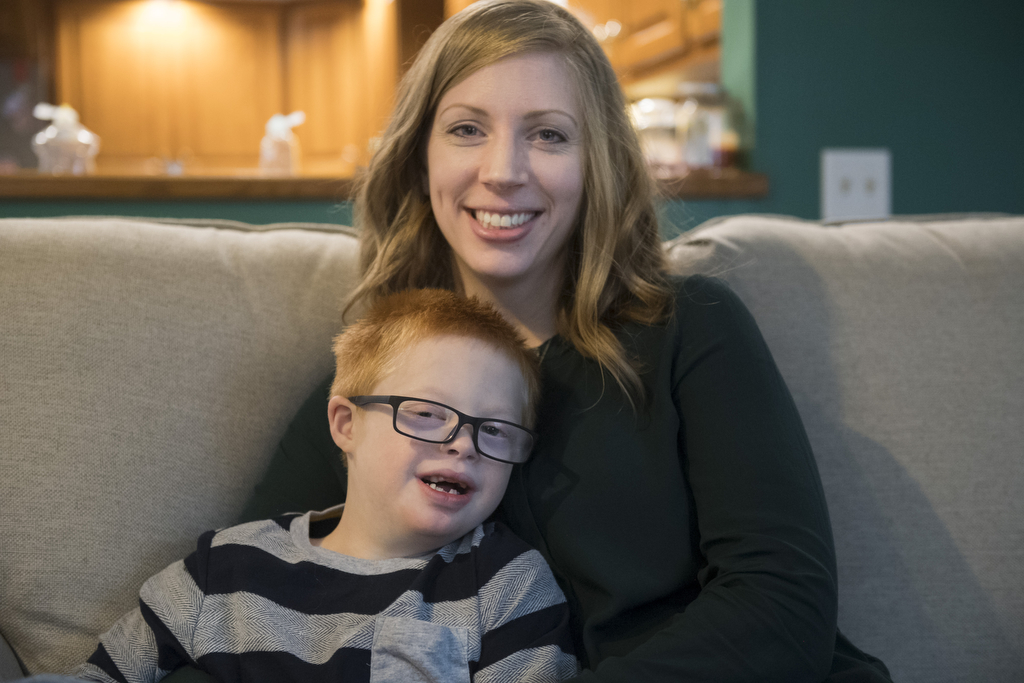
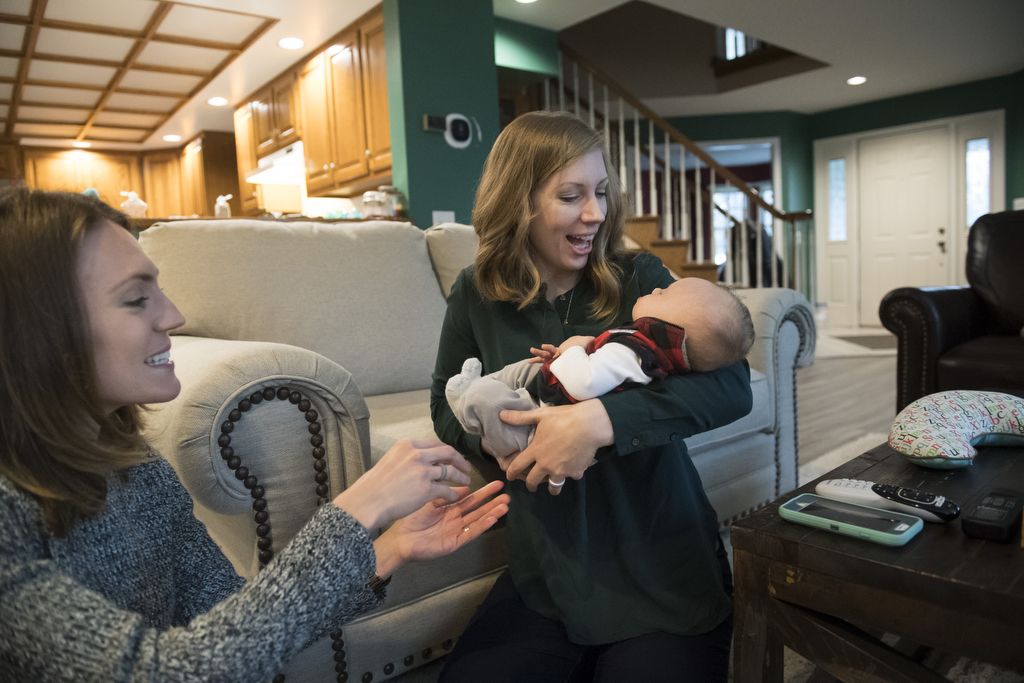
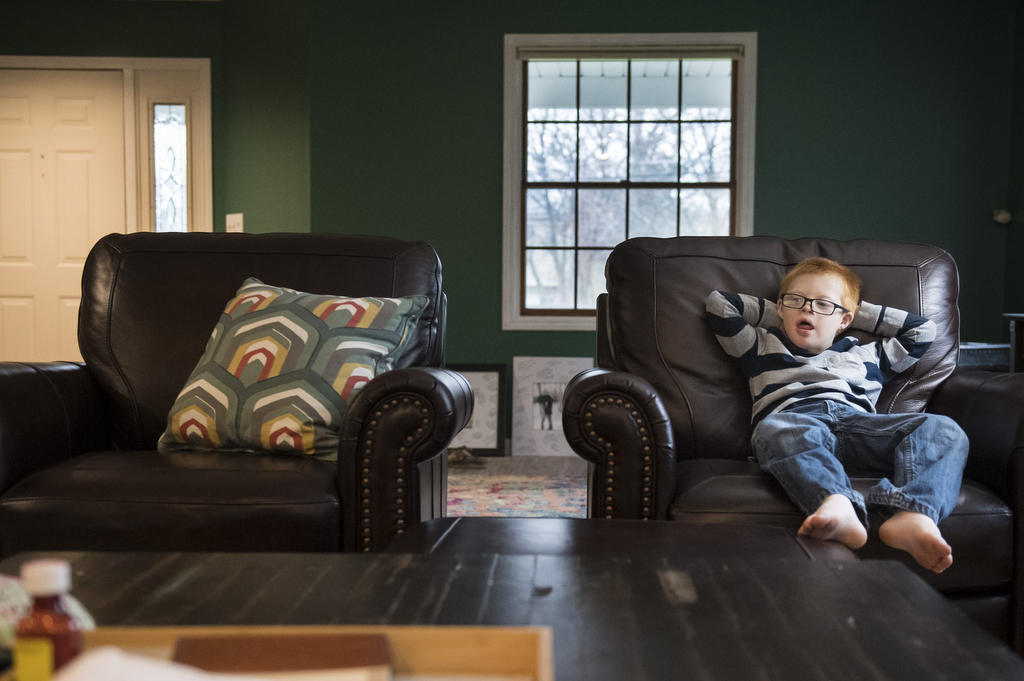
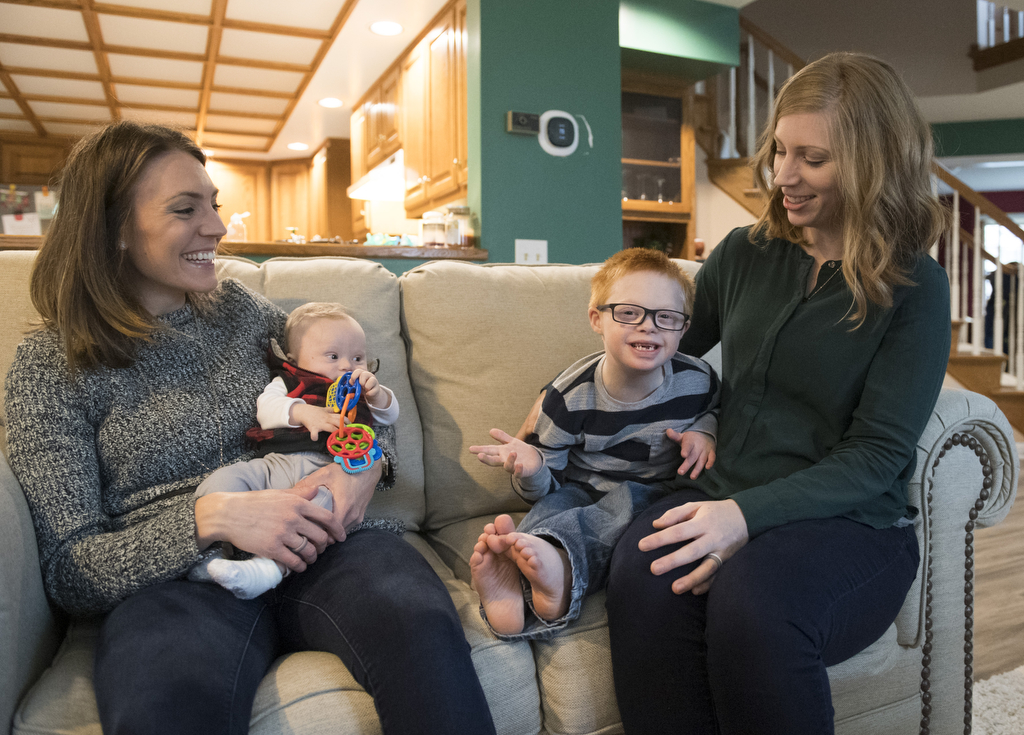
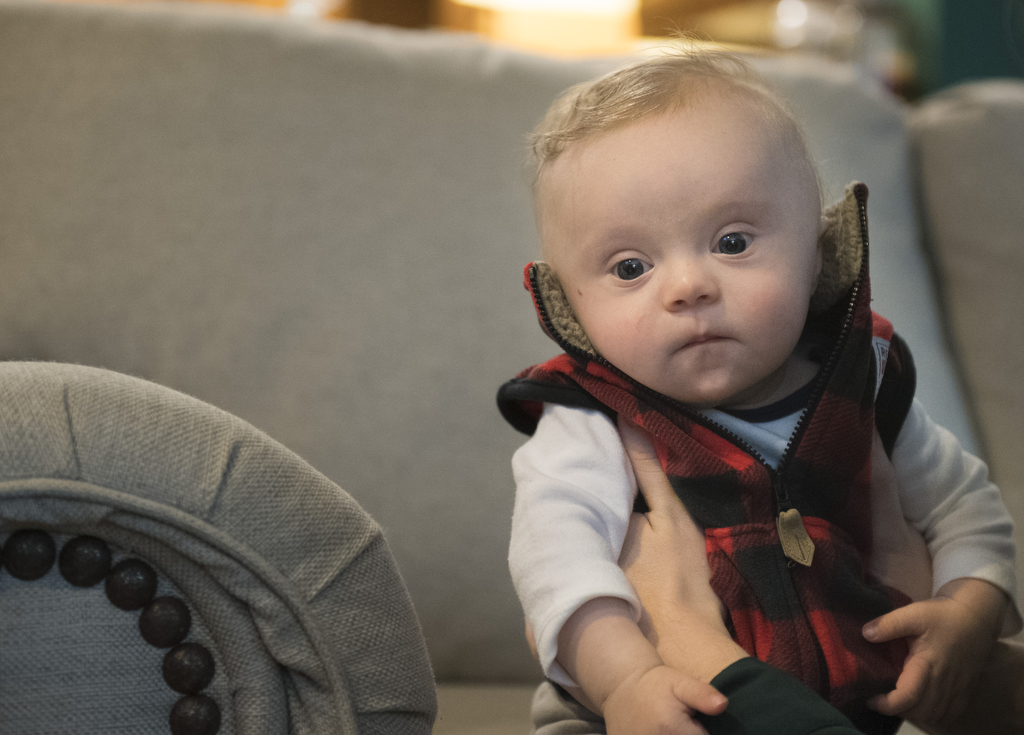

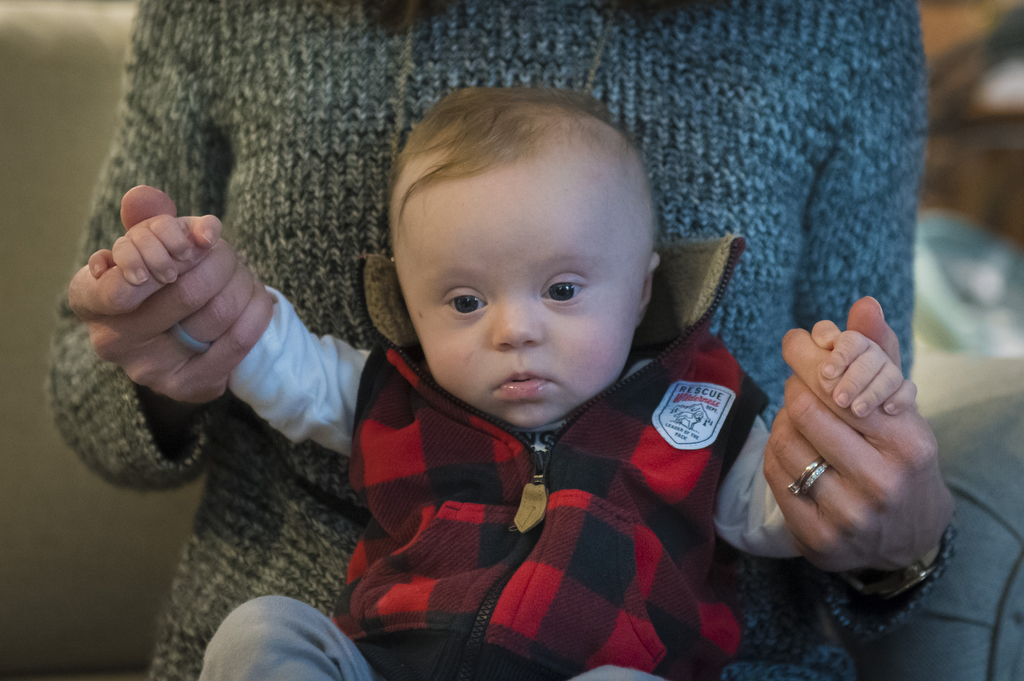
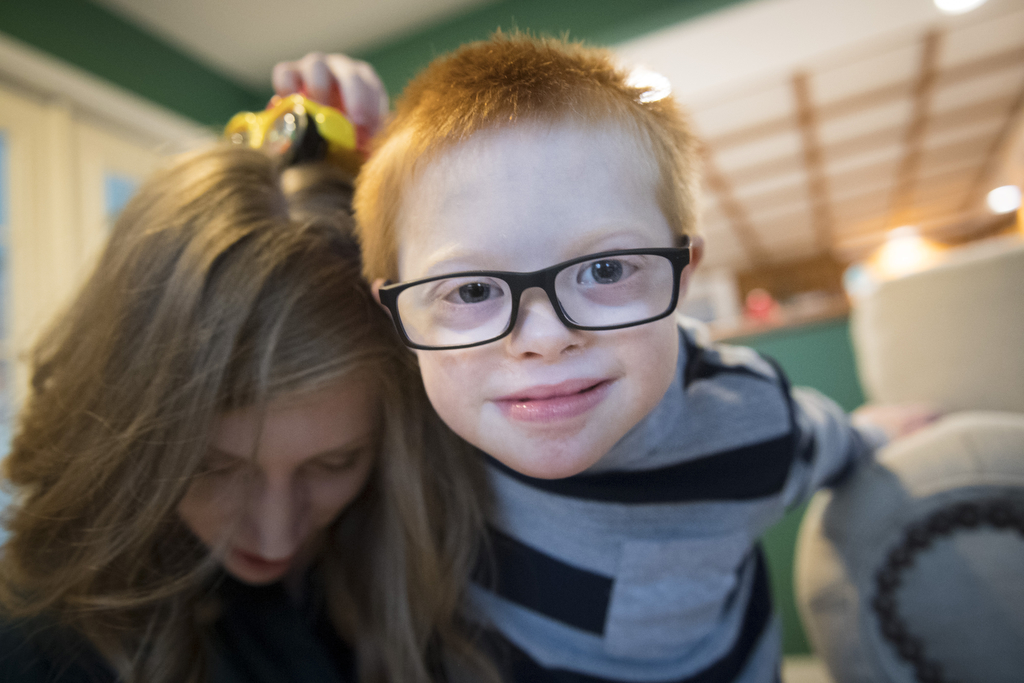

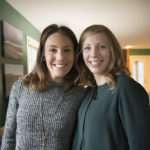
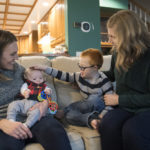
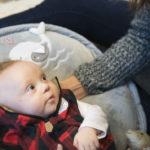
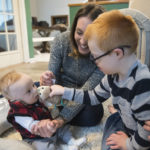
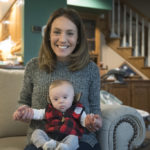
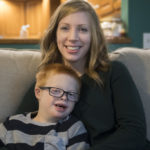
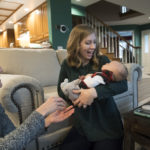








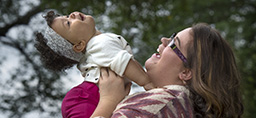 /a>
/a>
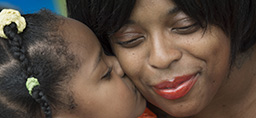 /a>
/a>
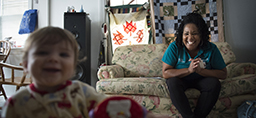 /a>
/a>
My Dr.s little girl has down syndrome. So read about every now and then. Because I like my doctor. Make our communication better to know where we’re both coming from
This was an amazing article. Communication is so important.